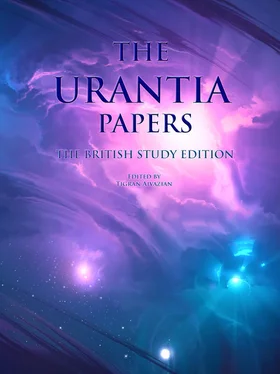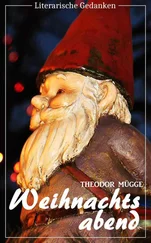Notes to Paper № 60
sometime, In 1955 text: some time. The one-word form is correct as the reference is to an indefinite point in time rather than to an indefinite period of time (see Webster’s ).
Notes to Paper № 61
martens, In 1955 text: martins. A single mistaken keystroke could have produced martins from an intended martens. It is also possible, however, that the original form was the author’s choice, being a correct, though less common, variant. (We cannot assert that the author would not use an unusual variant, because coons was used for raccoons only two pages previously. (61:2.7 in the text.) However, even if originally correct, this usage of “martin” is no longer current so the modernization of the spelling is reasonable.
Holocene , In 1955 text: Holocene (not italicized). All other geologic periods are italicized; including ‘Pleistocene’ and ‘Cenozoic’ on this same page.
Notes to Paper № 69
stone masons, In 1955 text: stonemasons. The original is clear, and is a correct form, but of nine occurrences in the text this is the only instance in which the compound form is found; this change is therefore a reasonable standardization of the database.
Notes to Paper № 74
passed;In 1955 text comma after passed instead of semicolon. The initial clause is a complete sentence; a semicolon is the correct way of linking the two parts of the larger sentence.
Notes to Paper № 77
people, In 1955 text: peoples. Neither ‘people’ nor ‘peoples’ appear here in the original Greek of this Matthew passage; a more common rendering being “And they brought to him all the sick ...” However, if one form or another of ‘people’ is to be used to place the Matthew passage in this context, ‘peoples,’ which indicates not multiple individuals but multiple large groups of people — whether tribal, national, or other, does not fit the grammar of the sentence and is clearly not intended here. A mistaken additional keystroke would account for the problem; ‘peoples’ should be changed to ‘people.’
Notes to Paper № 78
any way, In 1955 text: anyway. The two-word form is the appropriate choice when serving as an adverb only, rather than as an adverbial conjunction, in which case the compound “anyway” is more common. This latter use, roughly synonymous with “at any rate” or “in any case,” is well illustrated by its only occurrence in the papers (at 148:6.4) when Job’s friend, Eliphaz, is quoted as saying: “Anyway, man seems predestined to trouble, and perhaps the Lord is only chastising you for your own good.”
Notes to Paper № 79
West, In 1955 text: west. The change from “west” to “east,” as found in many printings, is geographically correct but typographically impossible; the committee adopted the alternate “West” referring to the Western Hemisphere — the word thus indicating a place rather than a direction of travel.
Notes to Paper № 80
some time, In 1955 text: sometime. The two-word form is correct as the reference is to an indefinite period of time rather than to an indefinite point in time (See Webster’s ).
Notes to Paper № 85
INFORMATIONAL, First printing; Baptism became a religious ceremonial in Babylon, and the Creeks practised the annual ritual bath. The Urantia Book passage does appear to parallel the first paragraph of Chapter IV in Hopkins, Origin and Evolution of Religion, (Yale 1923), and the typographical difference between “Greeks” and “Creeks” is only one letter — an easy error — however, the flow of references is slightly different, making “Creeks” seem out of context in The Urantia Book. Further, and more importantly, it is inappropriate to modify the text of The Urantia Book based on an assumed link to another text. If the revelators had stated that they were quoting Hopkins, or if there were no Greeks who practised the annual ritual bath (which is not true — such a rite was practised by the adherents of the Eleusinian mysteries, one of the largest cults of the Greek world in the times prior to Jesus’ bestowal), then it could be reasonably asserted that a typographical mistake had been made. In the absence of such an error or such a direct assertion by the author of the paper, renders such a change beyond the scope of the editor’s range of action. The authors of The Urantia Book often adapted pre-existing texts to their own purposes — modifying them as they deemed appropriate.
Notes to Paper № 86
Badonan, In 1955 text: Badanon. Badonan is the correct spelling; Badanon was, no doubt, the result of an inadvertent key transposition.
Notes to Paper № 87
someone, In 1955 text: some one. The two-word form is appropriate when referring to some one member of a particular group, as “Some one of you will go with me ...” The compound form is used when the group of which the ‘one’ is a member is not specified. Fowler (1926) clarifies the differentiation by stating that ‘someone’ should be used when ‘somebody’ could be substituted for it; ‘some one’ should be used in all other cases.
Notes to Paper № 89
corn, In 1955 text: coin. Early Egyptians developed a system of exchange of gold and silver rings, but true coinage was not introduced until the period of Persian domination (525-415 B.C.), during which the gold daric and silver siglos of Darius I (reigned from 521-485 B.C.) would have been used for some transactions. Coins were not actually minted in Egypt until ca.404-343 B.C. during the brief period of independence between the 1 stPersian period and the reconquest by Artaxerxes III (342-336 B.C.), when silver imitation Athenian Owls were minted. Coins were regularly minted in Egypt during the Ptolemaic (283-30 B.C.) and subsequent Roman periods. The Harris Papyrus I http://en.wikipedia.org/wiki/Papyrus_Harris_Icommemorates the reign of Rameses III, and was commissioned by his son Rameses IV at the former’s death in 1172 B.C. The list of gifts to the Gods in the Urantia Book at 89:4.9, excerpted from this papyrus, thus predates the earliest significant presence of coins in Egypt by 650-750 years. Therefore, the reference in The Urantia Book is a simple typo made when quoting a known source; but regardless of quantities, the 1955 text cannot be correct — it is erroneous on its face. This is the key difference between this item and the Greek/Creek item in 85:4.1. This precise list, including the “coin” typo, is found in William Graham Sumner/Albert G. Keller http://en.wikipedia.org/wiki/William_Graham_Sumner, The Science of Society, Yale, 1927.
Notes to Paper № 90
Tenskwatawa, who predicted the eclipse of the sun in 1806, In 1955 text: Teuskwatawa, who predicted the eclipse of the sun in 1808... Tenskwatawa is the standard transliteration for the Shawnee prophet’s name; the spelling in the first edition may have been caused by a mistaken keystroke or may have been the result of an error in reading the original manuscript. (Regarding the latter possibility, see the note for 195:3.10.) — 1808 — Since nothing in the text is dependent on the 1808 date, nor linked to it in any way, and since the change from the incorrect to the correct date — 1806 — is just one digit/keystroke, this is no more significant a change from a technical standpoint than the correction of a spelling mistake — except that so many people have spent so much time making so much over this obvious mistake in The Urantia Book.
Читать дальше






![Theresa Cheung - The Dream Dictionary from A to Z [Revised edition] - The Ultimate A–Z to Interpret the Secrets of Your Dreams](/books/692092/theresa-cheung-the-dream-dictionary-from-a-to-z-r-thumb.webp)





